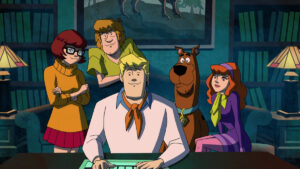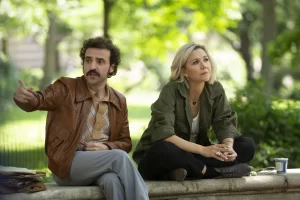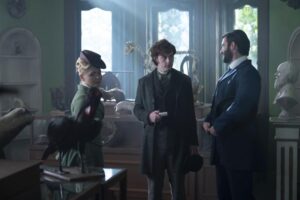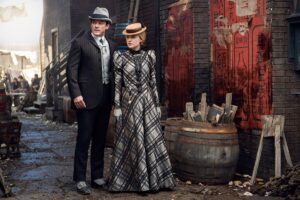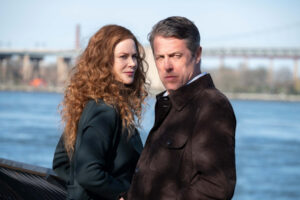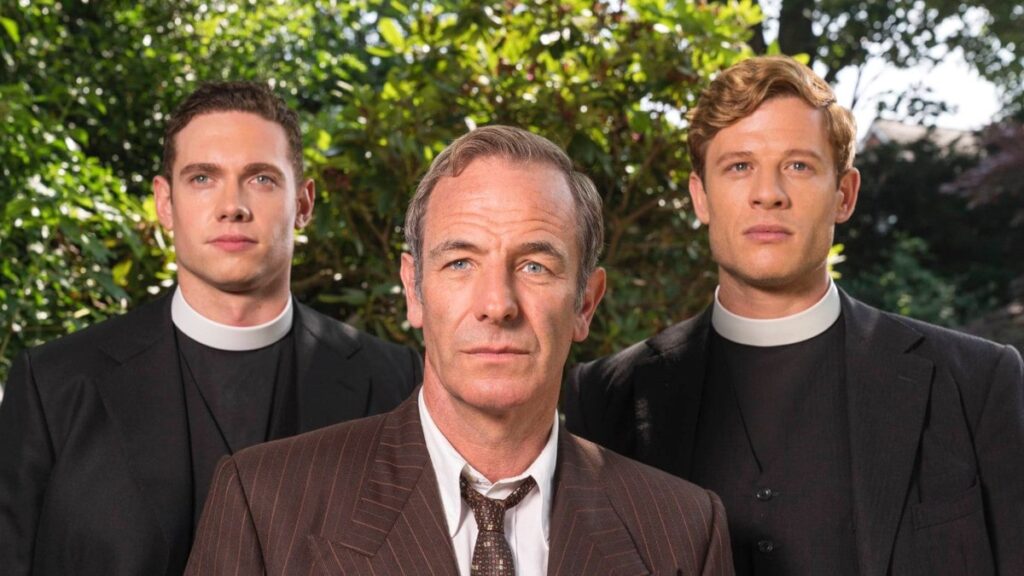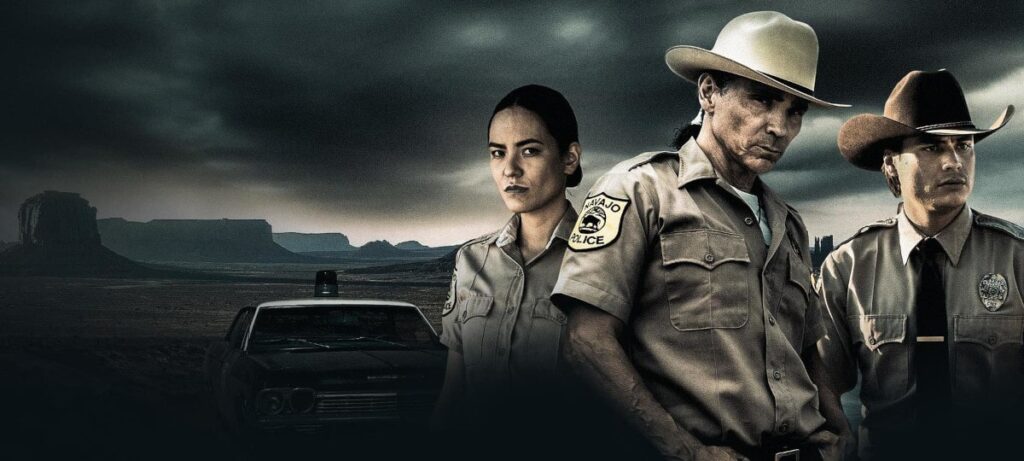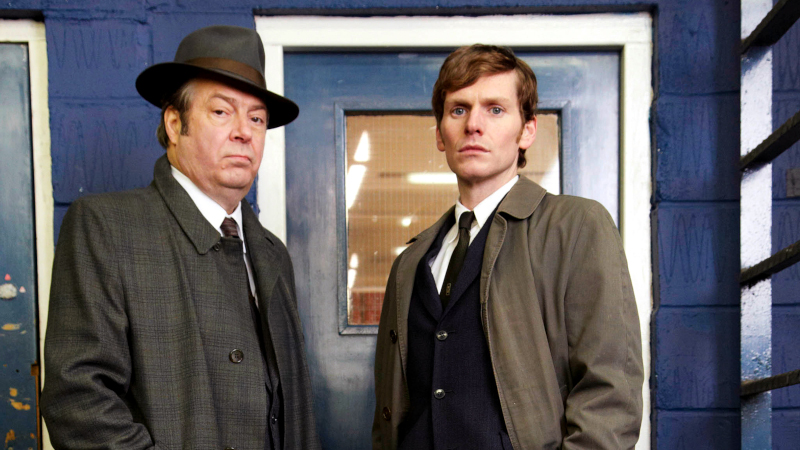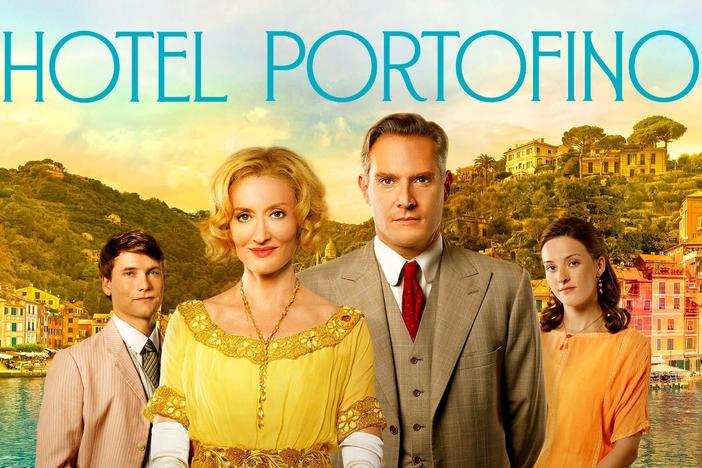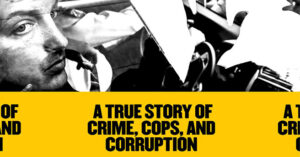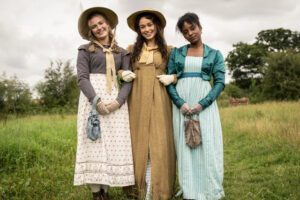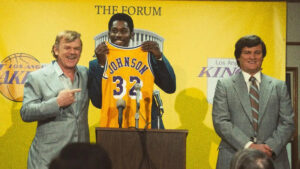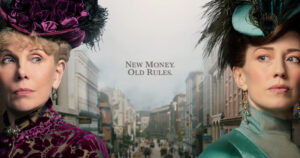I’m a big fan of science fiction and fantasy and The Ark looked like it might be right up my alley. I’m sad to say the first episode was lackluster in a number of ways. What went wrong? Is it salvageable? These are good questions and I’ll take a look.
I will say that a first episode can be difficult. The actors and writers don’t always have a full understanding of the characters. The structure of the story can change as things move deeper into a show. Watch the first episode of a show you love and then compare it to what it became. Starting off slowly isn’t uncommon and I’m happy to give The Ark some time.
That being said, it wasn’t good. Let’s get on with the review.
What is The Ark?
The Ark details an interplanetary mission to colonize a new world. The best and brightest of Earth are on The Ark to find a new home for humanity. The crew is in hibernation while the ship makes its five-year journey to this new world.
The Opening Scene
The opening scene is designed specifically to set the tone for the show. There is some sort of disaster and the ship experiences catastrophic failures. The hibernation pods are turned on so the crew can deal with the problem. Unfortunately, the entire command crew of The Ark dies when their wing of the ship is destroyed.
This creates the underlying plot structure specifically mentioned by the show producer, Dean Devlin. The idea is to see how ordinary people work together once the people picked to be in charge are no longer around.
It’s an interesting idea and well-worth exploration.
The Stereotypes are Everywhere
The show stereotypes almost every single character and it’s more than a little annoying. The nerdy guy and girl are the geniuses who save the ship. The female lead is the headstrong, take-charge type. The hunky guy is full of himself. The pretty girl is a narcissist.
Some people are complaining the show is Woke, I guess because of the female lead, but in reality, it’s the opposite of Woke. The characters are all stereotypical and dull. They are excellent examples of anti-wokeness. Judge a book by its cover. Nerdy people stammer and are awkward. Pretty people are vain.
The Science is Bad
I’m certainly not a stickler for hard science in a show of this nature. What tends to bother me are scenes where doing the science right is simple and yet overlooked. What is with all the number keypads on the doors? Why is the drama wrapped up in the door not opening? Why does the combination work the third time when it didn’t the first two?
How are they going to grow crops in one inch of soil spread out on the floor? You need beds. Consult a gardener. How difficult is it to figure this out? Not to mention stomping all the soil it until it’s hard as rock.
How come the crew of this enormous spaceship is four-hundred people? There is a huge amount of space and almost no one living there. It makes no sense. What are all the open spaces? If the crew was supposed to sleep in hibernation until arrival, the ship is just an incredible waste.
Why do they need water recyclers? Again, the crew was supposed to sleep until a few weeks before arrival. They have food and water for that time-frame. No need for recyclers. There were a few other things I noticed but I’m rambling now.
Conflict with no Build Up
This was probably my biggest problem with the entire first episode. Each major obstacle occurred without any buildup whatsoever. The ship malfunction that awakened the crew is the opening scene.
Next is the water and food crisis. Why not have a few scenes where people are examining the situation, talking about the amount of food and water available. The number of crew members remaining. Discussing putting people back in stasis. There’s no setup, it’s just instantly a problem.
The nerdy guy, mentioned earlier, suddenly has a solution. Why not show him going to the cargo bay and making sure his special items are indeed stored? Have him discuss the possibility of growing food with someone. Build up to the crisis and then cover the possible solutions. The show just throws it all at us instantly.
The oxygen crisis came out of absolutely nowhere. Why not show parts of the damaged ship, show valves leaking oxygen? Show indicators as the problem slowly rises. Build some tension. Maybe one person notices it but is told not to worry.
Why not have the crew member charged with putting oxygen in helmets stop for the day at the important hallway? She’s exhausted and thinks about going on but then leaves it for tomorrow. This is foreshadowing. This is writing a plot, a structure. Building tension. When the conflict arrives out of nowhere with no warning, it’s just not as impactful as seeing it slowly coming.
Solutions with no Explanation
The oxygen problem is solved instantly because the nerdy girl, mentioned before, happened to do her dissertation on the guy who wrote the software. Why not spend some time with her beforehand where she discusses her life, her experiences. Perhaps even in a way that’s not incredibly annoying because the writers felt the need to stereotype her so badly. Then when she knows this stuff, we understand how.
Her solution isn’t really a solution at all. It’s just her pushing some buttons and everything being solved despite the leak still existing.
Conclusion
I’ve been rambling here for a while so I’ll wrap up. I did have other problems with the first episode of The Ark but I’ll leave them for now.
Stereotyped characters. No rising tension. No thought-out solutions. Rushed. That’s the word I’d use. Very rushed. Slow it all down. Let the stories unfold, build the drama. The first ten minutes of the show, the disaster, finding the command crew dead, survivors finding out what happened and adjusting to the new paradigm. That’s interesting. That’s a good first episode. Make that the first sixty minutes and you’ve got something. As it is, I’m not hopeful. Too much, too fast. Not interesting.
Tom Liberman

